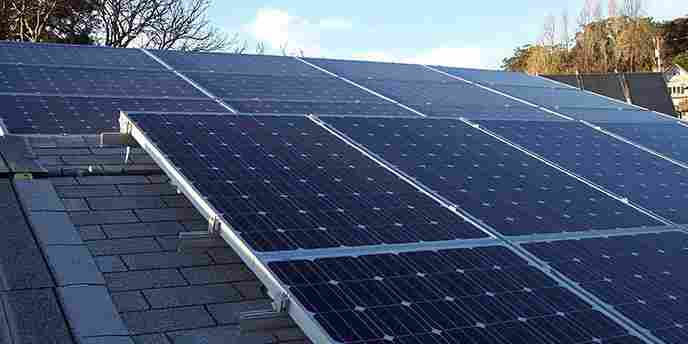Are home improvements tax-deductible? If so, what home improvements are tax-deductible? These are important questions to ask yourself if you’ve renovated your home in the past year, or if you’re planning to. Let’s dive in a little deeper.
Is Your Home Improvement Project Tax-Deductible?
Several types of home improvement projects can be eligible for a tax write-off, but it ultimately comes down to what kind of remodel you’re completing and whether it’s classified as a repair or an improvement.
Repairs vs. Home Improvements
A repair is any modification that restores a home to its original state and/or value, according to the IRS . Home repairs are not tax-deductible, except in the case of home offices and rental properties that you own – more to come on that later in this guide. “Some examples [of home repairs] include replacing broken window panes, fixing a leaking faucet, fixing a hole in the carpet, replacing broken hardware, or replacing a few broken roof shingles,” shares the team at TaxSlayer .
An improvement is any modification that increases the value of your home. According to TaxSlayer, examples of improvements include adding a new driveway, a new roof, new siding, insulation in the attic, a new septic system or built-in appliances. Improvements are typically tax-deductible, but some are only deductible in the year the home is sold.
For instance, if you made a home improvement in 2013 and sold your house in 2020, any deductions you may be eligible for would be recognized on your 2020 tax return. Even if you’re not planning to sell your home in the next year, it’s important to thoroughly document any tax-deductible home improvements you make along the way so you can make the most of your upgrades when the time comes. If you’re unsure whether a repair or improvement is tax-deductible, contact a local tax accountant who can answer your questions about filing.

“According to IRS Publication 523, to qualify as an improvement, the task must add value to your home, adapt it to new uses, or prolong its life. If repair-type work is part of the overall improvement, you may include it.”
The TaxSlayer Editorial Team

5 Home Improvements That are Tax-Deductible
1. Energy-Efficient Renovations
On a 2020 tax return, homeowners can claim a credit for 10% of the cost for qualified energy-efficiency improvements, as well as the amount of the energy-related property expenditures paid or incurred during the taxable year (subject to the overall credit limit of $500).
“Tax law changes reduced what qualifies for the Residential Renewable Energy Tax Credit, only leaving improvements for solar energy intact,” shares TaxSlayer. “The new tax law states that credits for wind, geothermal, and fuel cell improvements are only good through tax year 2017. The solar credit will remain until 2019, and then it will be reduced every year through 2021.”
However, putting solar energy systems on new or existing homes can still result in a 30% credit of the total cost of installation. This credit is not limited to your primary residence and is even available for newly-constructed homes. Keep in mind that most eligible improvements for energy efficiency can be credited, but not deducted , within the same year.
Energy-Efficient Home Improvements With a Tax Credit:
Are there any other improvements that can be credited or deducted within the same year?
 Are there any other improvements that can be credited or deducted within the same year?
Are there any other improvements that can be credited or deducted within the same year?“New or used (that meets the acquisition requirement under the new tax act) property that has a useful life less than 20 years can be fully deducted under the bonus depreciation rules. Some leasehold improvements to non-residential real estate can also be fully deducted under these rules.”
Dawn Hryshko | President & Founder of Hryshko & Associates, Cleveland CPA Firm
2. Home Improvements for Medical Care
Tax deductions for home improvements related to medical care can be hard to come by. But if you plan on aging in place , these deductions may apply to you in full. You can include expenses for medical equipment installed in your home if its main purpose is to provide care for you, your spouse or a dependent.
The following list of improvements are considered fully-deductible expenses, as these projects are not considered to add value to the home.
Medical Care Home Improvements With a Tax Deduction:
Check out the Nolo Network’s guide on medical tax-deductible home improvements for more information.
3. Home Office Improvements
The two basic requirements that qualify home office improvements for a tax deduction are regular, exclusive use and that your home is the principal place of your business.
In recent years, home office renovations have seen some of the biggest tax law changes. Tax deductions are no longer available to employees who maintain a working space apart from their employer’s. But home office remodels can still be deducted for those who are self-employed or run their own businesses.
The good news is that if you qualify for this tax break, both repairs and improvements can be eligible, provided they are only in the parts of your home used for business. Home office improvements are deductible over time with depreciation, and repairs are deductible within the tax year they are completed, since they’re considered necessary for the upkeep of your business.
Office Home Improvements With a Tax Deduction:
Repairs that directly impact your business space can be deducted in full (e.g., mending a broken window in your office). But if renovations or repairs benefit your entire home (e.g., heating and cooling systems or roof repairs), the deduction is calculated as a percentage. For example, if your office occupies 20% of your home, 20% of the renovation cost is tax-deductible.
4. Rental Property Renovations
With rental properties, the rules on repairs vs. improvements can get a little complicated. Repairs are tax-deductible, as they are considered necessary to the upkeep of a property. Similar to home offices, rental repairs can be deducted within the year they are completed. Improvements, such as a bathroom renovation , kitchen remodel or replacing appliances , add value to your rental property and therefore depreciate over time.
Rental Home Improvements With a Tax Deduction:
5. Home Improvements for Resale Value
Major home improvements, or capital improvements, increase your home’s value. Capital improvements have to last for more than one year and add value to the base cost of your home, prolong its life or adapt it to new uses. These improvements can be tax-deductible when it comes time to sell your home, so it’s crucial to itemize receipts and keep track of where money was spent, including labor costs.
Resale-Focused Home Improvements With a Tax Deduction:
Tax-Deductible Home Improvements the DIY Way
Whether you’re aging in place, making energy-efficient upgrades or updating your home before selling, we have the resources to help you complete tax-deductible projects on your own. Check out our DIY home improvement guide for step-by-step tips on repairing and renovating your home.
